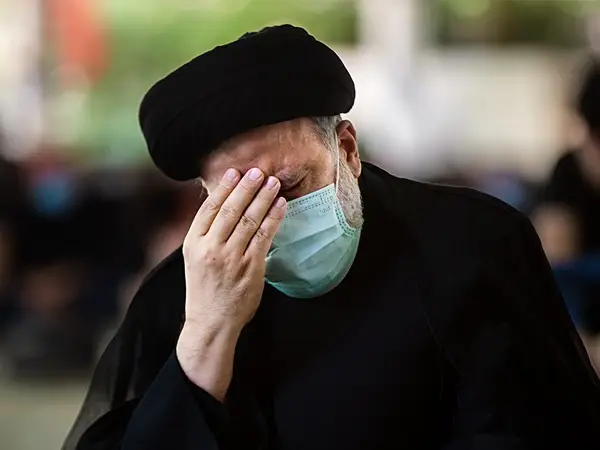Media outlets in Tehran gave low grades to President Ebrahim Raisi at the end of his three months in office and now they are scrutinizing his first six months.
The assessments in November concurred that his promises were still unmet, and his economic team failed to address the problems they had highlighted during the presidential campaign.
After his first three months, the press had criticized Raisi and his team of diplomats for failing to reach a settlement in the Islamic Republic's long-standing diplomatic confrontations with the United States and neighboring countries. The failure of the new government's diplomacy was most evident in the deadlock over the revival of the 2015 nuclear deal with world powers.
Now, a report in the moderate Rouydad24 news website, is the first assessment that covers the past six months. The main idea behind the report is that this is a longer span of time and can provide a sound basis for judging Raisi's performance.
Just to be fair, the report concluded that in some areas including vaccination against Covid-19 and communicating with the masses of Iranians Raisi's performance has been better than the track record of his predecessor, former President Hassan Rouhani.
At the same time, the report argued that some of Raisi’s points of strength during his first three months in office have turned into points of weakness.
Following the first three-month assessment, one of Raisi's aides told the press sarcastically that even if growing eggplants takes more than three months, the Iranian press expected Raisi's promises to be fulfilled sooner.
The Raisi administration's success in vaccination was the product of two factors: The decision to import vaccines rather focus on developing homegrown variants and Chinese government's willingness to provide vaccines to the new conservative Iranian government.
Broken promises
Meanwhile, during the past six months, the administration has faced more protests by various vocational groups such as teachers, steel workers, pensioners and so on than any other Iranian government. A huge wave of protests in Esfahan also rocked the government. The reason is its failure to address the economic and financial problems it had promised to tackle during the election campaign. At the same time Iranian media are not allowed to cover the news of these protests that are almost solely reflected in foreign-based media's coverage.
Another shortcoming in Raisi's performance is the promise to build four million homes every year has been officially turned into "one million in four years." People have noticed this because it is measurable. The government continues registering new buyers for the homes it hopes to complete during the second four years of Raisi's presidency. That is if he gets re-elected.
Despite his election promise, Raisi’s government has pushed to restrict access to the Internet and social media, which the only outlet where people can vent their frustration and talk about their grievances or disclose corruption and lawlessness.
In the meantime, while Iranians expected a hardliner government to work better with a hardliner parliament, disputes have emerged between the two sides over the performance of Raisi's economic and foreign relations teams. The Majles is now more than adamant to impeach and replace at least four of Raisi's ministers.
Also, Raisi's promise to mend ties with neighbors did not bear fruit. The impasse with Saudi Arabia still remains in place and tensions between Iran and the Republic of Azerbaijan reached dangerous levels at least twice during the past six months. Meanwhile Putin's humiliating treatment of Raisi, and blunders by him and his team during his visit to Moscow gave way to many jokes.
Although the extent of criticism of the Raisi Administration is unprecedented during the past decades and the government's social capital has been constantly in decline, still Iranian media believe Raisi's provincial visits is the highlight of his few achievements. He also pays occasional "surprise visits" to factories and other workplaces where once he suddenly asked a worker if he had lunch, making him popular among joke-loving Iranians for all the wrong reasons.
